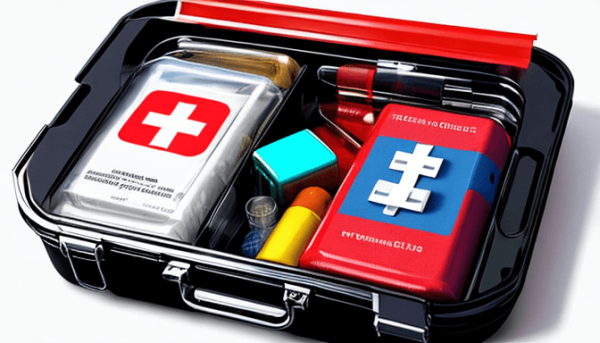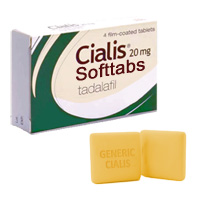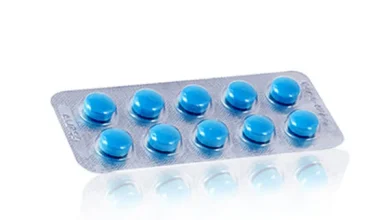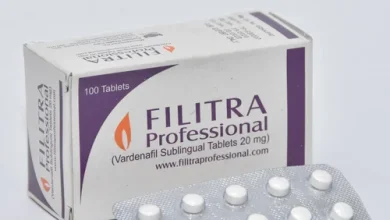Stimulant Overdose First Aid: Saving Lives in Emergency Situations
What is a Stimulant Overdose?

Stimulant overdose is a severe condition that can threaten a person’s life. When a person consumes excessive amounts of stimulants, such as amphetamines, methamphetamine, cocaine, or prescription drugs, such as Ritalin or Adderall, an overdose can occur. In this article, we will discuss stimulant overdose treatment and first aid measures you can take to help save someone’s life in an emergency like this.
What is a Stimulant Overdose?
A stimulant overdose occurs when a person consumes a stimulant amount far exceeding the safe dose. The effects of stimulants on the body include increased heart rate, high blood pressure, excessive excitement, and increased energy. However, when stimulants are consumed excessively, the negative impacts become much more severe.
Stimulant overdose can result in dangerous symptoms such as:
- Palpitations: Rapid and irregular heartbeat.
- Narrowing of blood vessels: This can cause an excessive increase in blood pressure.
- Chills and sweats: Although stimulants increase body temperature, overdoses can cause drastic changes in body temperature.
- Fear and paranoia: A person who overdoses on stimulants may feel anxious or paranoid.
- Loss of consciousness: A severe overdose can cause a person to lose consciousness or have a seizure.
Signs of a Stimulant Overdose

To better understand stimulant overdose, let’s explore the clinical signs that may appear:
1. Increased Heart Rate
Cause: Stimulants stimulate the cardiovascular system, increasing heart rate.
Signs:
- Tachycardia: Heart rate exceeding 100 beats per minute.
- Arrhythmia: Irregular heartbeat.
2. Increased Blood Pressure
Cause: Stimulants can cause blood vessel constriction, increasing blood pressure.
Signs:
- Hypertension: Significantly high blood pressure.
- Severe headaches caused by high blood pressure.
3. Hypertemperature
Cause: Stimulants can increase body heat production.
Signs:
- Fever: Body temperature above 40°C.
- Headaches and dizziness due to increased body temperature.
4. Psychological Disorders
Cause: Stimulants affect brain function and can
cause psychological disorders.
Signs:
- Severe anxiety: Feelings of excessive stress.
- Paranoia: Unreasonable fear.
Hallucinations: Hearing or seeing something that is not real.
5. Loss of Consciousness
Cause: Overdose of stimulants can cause loss of consciousness.
Signs:
- Coma: Unconscious and unresponsive.
- Seizures: Uncontrolled body movements.
6. Excessive sweating
Cause: Stimulants can increase sweat gland activity.
Signs:
- Drenched with sweat: Clothes or body that are very wet with sweat.
7. Respiratory Disorders
Cause: Stimulants can affect breathing.
Signs:
- Breathing is rapid and shallow.
- Hard to breathe.
8. Gastrointestinal Disorders
Cause: Stimulants can affect the digestive system.
Signs:
- Vomiting and diarrhea: Abnormal digestive symptoms.
9. Motor Disorders
Cause: Stimulants can affect motor coordination.
Signs:
- Tremor: Vibration of the body or hands.
- Inability to move normally.
10. Swelling and Chest Pain
Cause: Stimulants can cause problems with the heart and lungs.
Signs:
- I have swollen lymph nodes in the neck or other areas.
- Sharp chest pain or pressure on the chest.
If you are in a situation where you suspect someone has overdosed on a stimulant, it is crucial to act immediately.
First Aid for Stimulant Overdose

1. Call for Medical Assistance
The first step you should take is to call for immediate medical help. Call the emergency number or ambulance service so medical personnel can quickly respond to the situation. Inform that you suspect someone has overdosed on a stimulant.
2. Remain Calm and Alert
While waiting for medical help to arrive, make sure you remain calm. Don’t leave people who have overdosed alone, and supervise them closely. If they lose consciousness, be sure to check their pulse and breathing.
3. Provide Important Information
When the medical team arrives, provide accurate information about the type of stimulant consumed by the person who overdosed, the dose that may have been destroyed, and the time when the last ingestion occurred. This information can help the medical team take appropriate action.
4. Don’t Force Vomit
Sometimes, people think forcing someone to vomit can help remove toxins from the body. However, this is not recommended in cases of stimulant overdose. Inducing vomiting can cause other problems, especially if a person loses consciousness.
5. Maintain Air Circulation
Make sure the person who has overdosed’s airway remains open. If they stop breathing or their breathing becomes irregular, you may need to perform CPR. If you are not trained in CPR, arriving medics will take over.
6. Don’t give medicine or drink
Giving medication or drinks to people who have overdosed on stimulants is not recommended unless under clear medical instructions. Some drugs or beverages can make the condition worse.
Treatment for Stimulant Overdose

Treatment of stimulant overdose is usually done in a hospital or medical facility. The medical team will take the following actions:
- Heartbeat Stabilization: The medical team can administer medications that affect the heartbeat to treat a fast and irregular heartbeat.
- Blood Pressure Control: If blood pressure is very high, medications that control blood pressure may be given.
- Intravenous Fluid Administration: Intravenous fluids are administered to maintain hydration and compensate for loss of body fluids that may occur due to excessive sweating or vomiting.
- Toxin Screening: If possible, the medical team may use medical procedures to remove stimulants from the body’s system.
- Psychological Treatment: Once the physical condition has stabilized, psychological treatment and counseling may be recommended to help the person who overdosed overcome the underlying problem.
Prevention of Stimulant Overdose
Prevention is always better than cure. If you or someone you know frequently takes stimulants, there are steps you can take to reduce the risk of overdose:
- Consult a Doctor: If you are taking stimulants as prescription medications, consult your doctor regularly to monitor dosage and side effects.
- Do Not Mix with Other Substances: Avoid taking stimulants with alcohol or other drugs, which can increase the risk of overdose.
- Understand Safe Dosage: Know the safe dose for the stimulant you are taking, and do not exceed it.
- Understand Side Effects: Know the possible side effects of stimulants and contact your doctor immediately if you experience any unusual symptoms.
- Psychological Support: If you think you depend on stimulants, seek psychological support and therapy to help overcome the problem.
Conclusion
Stimulant overdose is a severe condition that can be life-threatening. Understanding the signs of a stimulant overdose is essential in providing effective, stimulant overdose treatment life-saving first aid. Implementing precautions to reduce the risk of stimulant overdose is also vital. In a stimulant overdose situation, there is no time to hesitate. Immediately call for medical help and support the individual who needs help. With a better understanding of stimulant overdose, we can play an active role in protecting the health and safety of ourselves and others.



